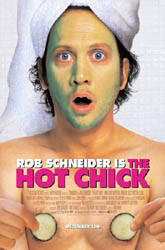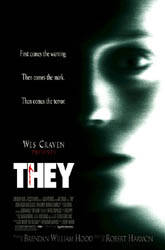 Director: Starring: Release: 6 Dec. 02
|
Adaptation. BY: DAVID PERRY Characters in 1999's Being John Malkovich paid $50 to spend 15 minutes inside the head of the actor. Three years later, the author of Being John Malkovich, Charlie Kaufman, is giving audiences the ability do something similar but getting a much better deal: now you can spend 2 hours in the head Kaufman for a $10 movie ticket. Adaptation., Kaufman's 8½-style attempt to create some form of screenplay adaptation out of Susan Orlean's The Orchid Thief, comes with the complete acknowledgment that nothing in the film is free from his extremely active imagination. From beginning to end, the film is wrought with Kaufmanisms that are more than simply a screenwriter brushing up source material, but is actually the deconstruction of one author's work through the psyche of another. As it turns out, Adaptation. isn't really about Orlean's The Orchid Thief, but instead Kaufman's inability to successfully adapt it (the fact that he does somewhat do this inadvertently is a minor miracle). Struggling to make a cinematic vision out of the metaphorical prose found in Orlean's nonfiction work, Kaufman finds it easier to write about himself (Cage) and his relationship to everyone dealing with the book, including Orlean (Streep) and the book's quasi-subject John LaRoche (Cooper). And, thus, Adaptation. becomes a screenplay about adapting a screenplay in a self-referential, metafilmic vacuum of art and metaphor. One of the central interests of Orlean in The Orchid Thief is the mystery of the ghost orchid, a rare flower that is said to have immense emotional weight for those who finally see it. Adaptation. the film is Kaufman's ghost orchid, not so much that he may or may not feel satisfied with his work, but in the fact that he actually found it. At many points while watching Adaptation., even though we are privy to the very film he's writing about, it looks doubtful that he'll be able to make sense out of everything. Perhaps the strongest conceit Kaufman makes is in playing with the reality of his realism -- turning his autobiographical story into the work of clichéd fiction. Like the fact that the John Malkovich in Being John Malkovich was a close facsimile but a different man (the real Malkovich has the middle name Gavin instead of the film's Horatio), the Charlie Kaufman of Adaptation. is close but not quite the same. Not only is Kaufman married and somewhat handsome in reality (unlike his film counterpart), but also he doesn't even have the twin brother Donald who serves as the voice of the populist principals throughout. Though the film is credited to the two men, Donald doesn't exist beyond this film, but his nature seems to be within his supposed sibling. Reality's Kaufman may be as neurotic as Adaptation.'s Kaufman, but he is surely more stable and controlled than in the film. Donald seems to be the part of Charlie that keeps him from imploding in a rush of second-guessing and self-hatred. Donald is, in many ways, the id of his twin brother, and, by understanding the dynamic to the two characters, it becomes clear why Adaptation. becomes the clichéd thriller script Donald has received immense acclaim for. I found it interesting that, in a film that wanted to embrace the absurdities of life, the most lovable lug on the screen was the imprudent figment who personified the formulaic side of Hollywood. In one of the film's funniest moments, Robert McKee, the famed screenwriting mogul portrayed here with gusto by Brian Cox, tells a seminar group, "For God's sake, don't use a deus ex machina!" oblivious to the fact that nearly every facet of the film he's inhabiting is one. Donald, McKee, deconstructionist variations of Orlean and LaRoche, the contrivances that can be found in both Donald's The 3 script and in the final act of Adaptation., and even this film's real author are deus ex machina in their own way. Not since Curtis Hanson's Wonder Boys has a film so proudly embraced the virtues of fiction and the realities that they can create. It is fitting that Hanson appears momentarily as Orlean's husband even though Orlean isn't really married. I've spent hours pondering the depth, the nuances, and the utter lies that can be found in Adaptation., and each time I become more enthralled with the achievement that it beholds. Immediately after watching, I was puzzled by the film's acclaim -- though I thought that it was certainly well written and had enjoyed many of its attempts to conventionalize the unconventional by showing just how beautiful the unconventional can really be, I was not enthralled. But each subsequent hour since, I've become more compliant to the film's faults (though he did wonders for Being John Malkovich, Spike Jonze's work on Adaptation. isn't quite as seamless) and more appreciative of what it had done. Adaptation. could be the year's greatest experiment, an exquisite
amalgam of fact and fiction, life and film. Rarely has a film succeeded in not only
capturing the audience's imagination with its lies, but also made them wonder just how
true those fallacies may be. Charlie Kaufman may be the biggest liar in Hollywood, but his
bizarre lies are so damn compelling. |
|
| ©2003, David Perry, Cinema-Scene.com, 10 January 2003 | ||






